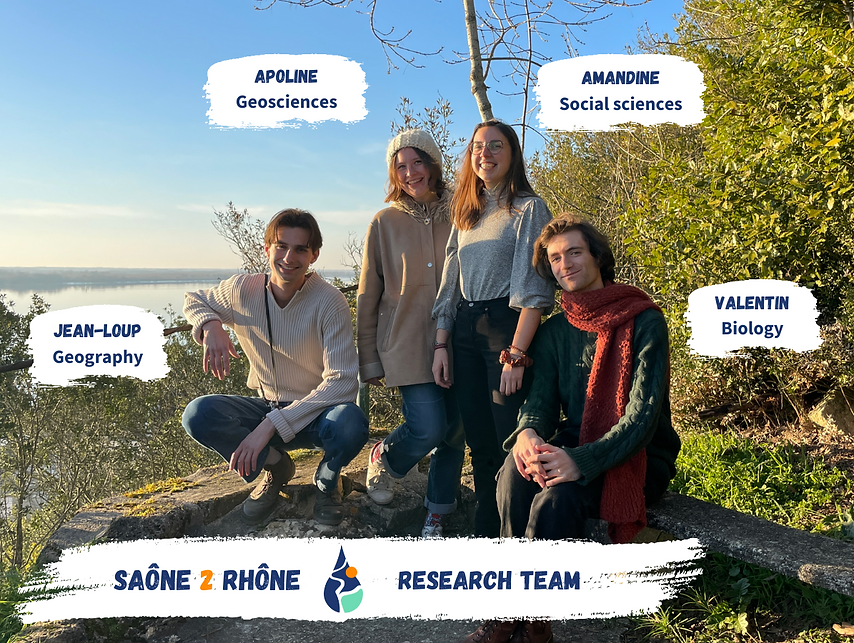
RESEARCH PROJECT
Through four key disciplines, the project Saone 2 Rhone places the interdisciplinary approach at the center of its research project.
With the support of several French laboratories and scientists, the students of the mission set up research protocols intended to answer several questions revolving around the ecological restoration, of the past and current uses and representations of the territoryas well as changes in space of these two rivers.
These projects, interconnected and responding to cross-cutting issues, go hand in hand with actions ofsensitizationand ofparticipatory science.
The mission Saone 2 Rhone aims to be at the interface between the collection of field data and awareness-raising action. This is also long-term and outside the research territory, with the development of publications and the creation of a network of partner schools.
Our field team

The four axes of the research project
Geography : History of the morphology of rivers, especially river islands
Environmental anthropology : Impact on the perception of our environment of naturalist practices and knowledge on biodiversity
Sociology of science and technology : Scientific and technical knowledge that governs land use planning and ecological restoration projects
Environmental Chemistry : Distribution of macro- and microplastics in sediments and water
The researchers whom we thank for their support
Maria Alp and Sophie Cauvy-Fraunié (EcoFlows laboratory, RiverLy)
Gaëll Mainguy (Learning Planet Institute)
Geography : Emmanuèle Gautier (Laboratory of Physical Geography, University of Paris 1 Panthéon-Sorbonne)
Environmental anthropology : Vanessa Manceron (Laboratory of Ethnology and Comparative Sociology, Paris Nanterre)
Sociology of science and technology : Carole Barthélémy (Population Environment Development Laboratory, Aix-Marseille University)
Environmental Chemistry : Marina Coquery (Aquatic environment chemistry laboratory, RiverLy), Brice Mourier and André-Marie Dendievel (LEHNA/ENTPE), Gaëlle Darmon


